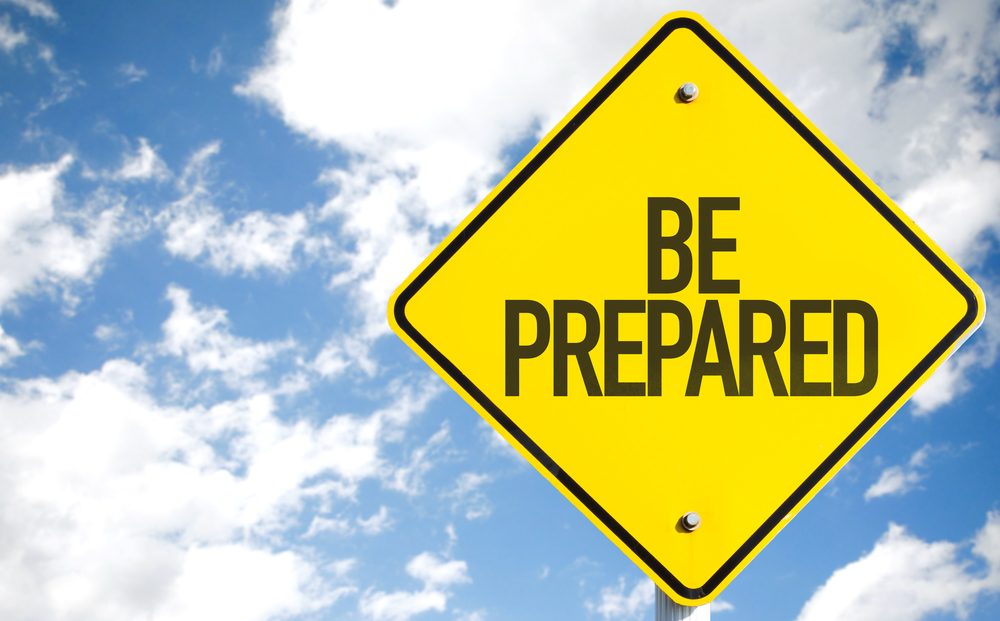![]()
If you’ve never lived through a state-wide, national, or global crisis before, the year 2020 has you covered, and depending on where you live, you might be experiencing all three. As recently as March of this year, people living in Utah were hit with a 5.7 magnitude earthquake that caused over 2,000 smaller aftershock quakes over the next few months. Meanwhile, the start of tornado season in the Southern United States has been uncharacteristically frenzied, with a greater number of events recorded than in previous years. Pile on top of that a worldwide pandemic of COVID-19 coming out of China, a renewed outbreak of Ebola in Central Africa, and near-Depression levels of financial turmoil here in America, and we can all confidently say that we’ve seen some things.
Expecting the Unexpected
Of course, these disasters are largely out of the control of individuals (to say nothing of the outbreak of the coronavirus) — we certainly can’t control the weather or the movement of Earth’s subterranean magma. But there’s still much we can do to prepare for the unthinkable. Remember the words of Dante, “the arrow seen before cometh less rudely.”
Concerning natural disasters, perhaps the most obvious first step is to learn which types of occurrence your home is most susceptible to experiencing; coastal regions have to worry about hurricanes, mountain ranges contend with earthquakes, and flatlands deal with tornadoes, to name a few. Once you’re armed with that knowledge you can begin to take stock of your preparedness.
Perhaps your best resources to know which disasters to prepare for are federally-run websites and your own neighbors, who no doubt have experience with that region’s meteorological tendencies.
A Plan for All Seasons
Once you know what you’re contending against, you can come up with an effective emergency plan. Perhaps your area suffers from frequent flooding due to swelling rivers, or maybe your city has had numerous nearby wildfires. Depending on where you live, you may need to make structural adjustments to your home to ensure its stability.
When creating an effective emergency plan it’s important to be able to answer these two overarching questions:
- Does everyone in the family know where to meet in the case of an emergency?
- Does the family have enough food and water reserves to make it through a prolonged event, if going to the store becomes too difficult?
In an emergency situation, these two questions govern the effectiveness of your response, simple as they may be. Of course, there are sub-questions linked to each: do you have any family members with special needs, and a plan tuned specifically to them? Do you have special emergency equipment like flashlights, batteries, matches, and blankets? Do you have up-to-date 72-hour kits?
When making an emergency plan, try to identify the most important things for survival — food, water, shelter — and ensure that you have answers for each.
Fighting an Invisible Enemy
Up till now, we’ve discussed mostly natural disasters. But perhaps the greatest threat on everyone’s mind is how to cope with the crises that have nothing to do with high waves and fast wind. What about novel virus strains like COVID-19 that has disrupted not just our individual lives, but the world economy? Again, there are two questions to consider when deciding how to cope with this disaster; no doubt you have been mindful of them already.
- What do government officials counsel families and individuals to do?
- What does your gut tell you?
Even now, research scientists are trying to isolate strains of these viruses in order to understand their properties, and in turn create a vaccine. Until that time, we must continue to operate under crisis conditions. This requires no small amount of common sense. Remember that until doctors and other credible medical sources tell you it’s safe to return to normal, it is still imperative that you wear your masks in public places and maintain social distancing.
Preparedness for an outbreak like COVID-19 doesn’t look like preparedness for other, more traditional forms of disaster. It involves taking part in solutions like video conferencing to see friends and loved ones and speaking to financial advisers about your investments and estate. While inconvenient, it’s heartening to remember that in many ways we’ve been preparing for something like this for a long time; as TV, movies, and video games are better than ever and the internet is available to more people than it ever has been.
Times like this are rare but not unprecedented, and we will get through it. Remember that these precautions, while important for all, are crucial to immunocompromised individuals. We all know someone like that.
